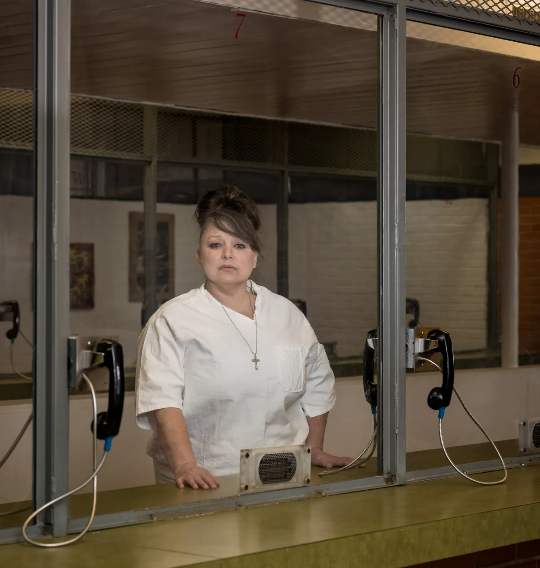The Nuns Trying to Save Women on Texas' Death Row - The New Yorker

Lawrence Wright is a Pulitzer Prize winner who’s written a lot about Texas, the state he calls home. His most recent novel is “Mr. Texas,” and he recently collaborated with Richard Linklater and other filmmakers from across the state to put together a HBO limited TV series, “God Save Texas,” the same name as one of his earlier books.
Part of that series focuses on the prison system, and Wright focuses in on one part of that women’s death row in a new article for The New Yorker, "The Nuns Trying to Save the Women on Texas' Death Row." The article begins with a description of a Catholic deacon, of whom Wright writes, “He wasn’t her lawyer. His assignment was to help her live until she had to die.”
The Texas Standard recently interview Wright about the New Yorker piece. Excerpts from that interview appear below:
*****
Texas Standard: This is a long, beautifully written and deeply researched article. I wonder, how long have you been preparing to tell this story?
Lawrence Wright: Well, it started in February and it’s just been a year, I guess. It’s not easy to do stories in the prison system, or at least on death row, because you can only interview an inmate for an hour on a Tuesday every 90 days. And so I had seven women to work with, so I was frequently driving. But it was hard to keep in touch with them because 90 days would elapse before I had the opportunity to meet again.
Texas Standard: And who are the Sisters of Mary Morning Star?
Lawrence Wright: Well, it’s an order that broke off from a community in France called the Community of Saint John because of the rather heavy handed attitude of the priests. So the women broke away and Pope Francis ordained them in 2014. There are about 300 worldwide and 30 different convents around the world. It’s a very interesting new order. The thing I was struck by is that the average age for a nun in America is 80. And the average age of this order is 38. So if there’s a future for sisterhood in the Catholic Church, I think these ladies are it.
Texas Standard: So this deacon we mentioned reached out to the nuns and invited them to visit these women on death row. And you described the connection between the women on death row and the sisters. About the inmates you wrote, “Each of the women had been sentenced to death, but until that day came, they were condemned to live with one another.” And it was the same in a different way – chosen way – for the nuns. Can you talk about all the ways these two groups of women connected when they met?
Lawrence Wright: Well, it’s fascinating because the nuns and the inmates, they both live in what they call “cells.” And, you know, their schedules are very similar – very regimented, in fact. But, you know, there are other subtle things that I didn’t really catch up on until Sister Lydia Maria, one of the sisters in Waco, said they don’t put on makeup. They don’t dress up. There’s a sense of meeting each other where they are. There’s nothing that would make the women on death row feel inferior or unbeautiful because the nuns renounce all of that. Also, I think even before the the nuns made their appearance, religion was a part of the life of most of the women on the row, but not with the kind of focused intensity that the nuns brought to it.
Texas Standard: Melissa Lucio is one of the women in your story, and Texans might know her name. There’s been a very public outcry about her innocence in the past two years. You also go into the back stories of others on death row. And I wonder if familiarizing us with their life stories and not just their crimes was something you set out to do.
Lawrence Wright: Well, I think each of these women has a dramatic story behind her, and there are awful parts of their stories, in many cases – their heinous crimes that they have committed. Some, I don’t know if they actually committed it or in some cases, I think the punishment may be excessive. For instance, there’s Kimberly Cargill who set her babysitter on fire, but the babysitter was already dead – apparently died of an epileptic seizure. The medical examiner could find no cause of death, ignoring apparently the fact that the victim had bitten her tongue and her cheek, which were signs she was an epileptic, signs that she’d had a seizure. You have Melissa, who now the district attorney, the judge and the defense attorney all say that she was innocent. And it’s been known for a couple of years now that she was very likely innocent, and yet she’s still on death row. So these things are really concerning. I, when I started this, didn’t have a strong objection to the death penalty, to be honest. But in looking closely at each of these cases, I see very troubling signs that make me think that the moral authority to impose an extreme penalty like this is just not available.
*****
You can read Lawrence Wright's story, "The Nuns Trying to Save the Women on Texas' Death Row," at the New Yorker with a subscription.










